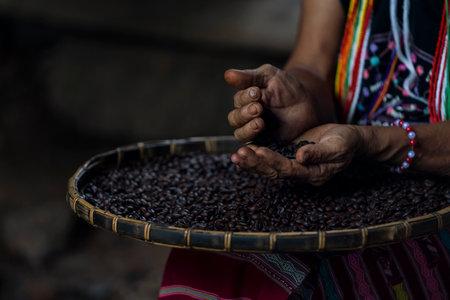Introduction: Setting the Context
In the vibrant tapestry of Indian agriculture, women have always played a pivotal role, often working tirelessly behind the scenes in fields, orchards, and homes. Today, nearly 80% of rural women in India are engaged in agricultural activities, contributing both as cultivators and labourers. Yet, despite their significant presence, their efforts frequently remain unrecognised and undervalued. Fair trade policy has emerged as a transformative approach to support these women, aiming to ensure just wages, safer working conditions, and equal opportunities. By addressing traditional gender biases and empowering women farmers, fair trade policy not only uplifts individual livelihoods but also strengthens rural communities across Bharat. As we explore the intersection of gender and fair trade in Indian agriculture, it becomes essential to understand how policy interventions can bridge gaps and create a more inclusive farming ecosystem for our women farmers.
Traditional and Evolving Roles of Women in Indian Agriculture
In the heartlands of India, women have always been revered as Annadata, the providers of food. Their hands sow seeds of hope and harvest dreams for millions of families. Traditionally, women’s work in agriculture was mostly seen in activities such as sowing, weeding, harvesting, and post-harvest management—tasks often invisible and undervalued, yet absolutely essential to the rural economy. These responsibilities were usually considered extensions of their household duties, with very little recognition or ownership over land and agricultural assets.
However, with changing times and the advent of progressive policies like Fair Trade, the role of women in Indian agriculture is evolving rapidly. No longer confined only to the Khet (fields), women are stepping up as key decision-makers and entrepreneurs. They are actively participating in crop planning, resource management, marketing produce at Mandi (local markets), and even leading farmer producer organizations (FPOs). This shift is not just about economic contribution but also about gaining social status and a voice in community matters.
The Journey: From Traditional Roles to Leadership
Traditional Role |
Evolving Role |
|---|---|
Sowing & Weeding |
Crop Planning & Resource Management |
Harvesting & Post-harvest Processing |
Leadership in FPOs & Cooperatives |
Livestock Care & Kitchen Gardening |
Market Linkages & Financial Decision Making |
Seed Saving & Food Storage |
Advocacy for Fair Trade Policies |
This transformation is visible across states from Punjab to Kerala, where more Akkas, Didis, and Behenjis are taking leadership roles. Yet, challenges remain—cultural barriers, limited access to land titles, training, and credit facilities continue to hinder progress. Fair Trade policy recognizes these gaps and aims to empower women by ensuring equal participation at every stage—be it farm-level decision making or representation on policy platforms.
The story of Indian women farmers today is one of resilience and aspiration. As they transition from silent contributors to acknowledged leaders under the umbrella of Fair Trade practices, the entire ecosystem benefits—from improved family nutrition to sustainable agricultural practices rooted in local wisdom and global standards.

3. Challenges Faced by Indian Women Farmers
Struggles with Land Ownership
For many Indian women farmers, land ownership remains a distant dream. In most rural communities, land is traditionally passed down through male heirs, leaving women with limited rights over property. Even when women contribute significantly to agricultural work, their names are rarely found on land titles. This lack of ownership not only affects their status within the family and society but also limits their ability to participate fully in decision-making processes related to farming and fair trade policies.
Limited Access to Credit and Resources
Accessing formal credit is another major challenge for Desi women farmers. Banks and financial institutions often require collateral, usually in the form of land, which most women do not legally own. As a result, women depend on informal sources of lending that come with high interest rates, trapping them in cycles of debt. Furthermore, lack of access to modern farming equipment, quality seeds, and training puts women at a disadvantage compared to their male counterparts when it comes to meeting fair trade standards.
Social Customs and Traditional Barriers
Cultural norms and social customs play a huge role in shaping the daily lives of Indian women farmers. In many villages, purdah (the practice of seclusion) restricts womens movement and participation in public life. Attending meetings or training sessions becomes difficult due to household responsibilities and societal expectations. These barriers make it challenging for women to become active stakeholders in fair trade initiatives, despite their crucial contribution to agriculture.
Dealing with Gender Bias in Agriculture
Gender bias is deeply rooted in the agricultural sector across India. Womens work is often undervalued or seen as an extension of household chores rather than skilled labor. This perception leads to lower wages and fewer opportunities for women to take up leadership roles within farmer cooperatives or fair trade organizations. Overcoming this bias requires both policy-level interventions and changes in community attitudes.
The Day-to-Day Hurdles: A Desi Reality Check
Beyond systemic issues, Indian women farmers face practical day-to-day hurdles such as balancing farm work with childcare, managing household duties without adequate support, and dealing with poor infrastructure like unsafe roads or lack of transport facilities. Despite these obstacles, many women show remarkable resilience—working together in self-help groups (SHGs), sharing knowledge, and supporting each other through thick and thin. Recognizing these challenges is essential for creating fair trade policies that truly empower Indian women farmers and improve their overall status.
4. Empowerment Through Fair Trade Policies
Fair trade policies have emerged as a game-changer for Indian women farmers, providing them with recognition, dignity, and economic stability. Through frameworks that promote equity and transparency, womens contributions in agriculture are finally receiving the value they deserve. The integration of Self-Help Groups (SHGs) and government Yojanas has further strengthened their journey towards empowerment.
The Role of SHGs in Women Farmers’ Empowerment
In the heartland of India, SHGs act as a backbone for rural women, especially those engaged in farming. By pooling their resources and working collectively, these groups enable women to access credit facilities, agricultural training, and market linkages that were once out of reach. The collective strength also gives them a stronger voice in decision-making at both family and community levels.
Key Benefits of SHGs for Women Farmers
| Benefit | Description |
|---|---|
| Access to Credit | Enables small loans without collateral through microfinance. |
| Skill Development | Regular workshops on modern farming techniques and leadership. |
| Market Access | Direct linkages with fair trade markets ensure better prices. |
| Collective Bargaining | Increases negotiation power for seeds, fertilizers, and selling produce. |
Government Yojanas Supporting Women Farmers
The Government of India has launched several Yojanas specifically aimed at uplifting women in agriculture. Schemes such as Mahila Kisan Sashaktikaran Pariyojana (MKSP), Pradhan Mantri Krishi Sinchayee Yojana (PMKSY), and Deendayal Antyodaya Yojana (DAY-NRLM) focus on financial inclusion, infrastructure support, and entrepreneurship development among rural women.
Example: MKSP Impact on Rural Women
| Area of Support | Impact on Women Farmers |
|---|---|
| Capacity Building | Training in sustainable agriculture practices and leadership roles. |
| Financial Assistance | Subsidies for purchasing seeds, fertilizers, and equipment. |
| Market Linkages | Facilitated participation in fair trade supply chains. |
| Community Mobilization | Encouraged formation of new SHGs and federations led by women. |
Cultural Impact: Changing Status in Society
The convergence of fair trade policies, SHGs, and Yojanas is gradually transforming the status of Indian women farmers. As these women earn independently and gain confidence, they are breaking traditional barriers—earning respect within their families (ghar ki izzat) and communities. Today, many are seen not just as helpers but as proud breadwinners (ghar ka mukhiya) who shape the future of rural India.
5. Voices From the Ground: Stories of Change
Celebrating the Sakhis: Catalysts of Transformation
Across the heartland of India, countless Sakhis (women friends) are rewriting their destinies through fair trade initiatives. These women are not just participants; they are leaders and changemakers within their communities. Their journeys reflect the beautiful tapestry of courage, resilience, and unity fostered by fair trade principles.
Punjab: Kulwant Kaur’s Organic Revolution
Kulwant Kaur from Ludhiana was once restricted to domestic chores, but after joining a fair trade certified organic farming collective, she blossomed into a community leader. Under her guidance, many local women switched to sustainable practices, gaining better market access and earning respect both at home and in the mandis (markets). “Fair trade gave me izzat (dignity) and a voice,” she proudly shares.
Maharashtra: Sunita’s Tale of Economic Independence
In rural Vidarbha, Sunita struggled with low crop prices and mounting debts. After connecting with a fair trade cooperative, she received training on direct selling and value addition. Today, Sunita manages her own small enterprise producing turmeric powder, supplying not just her gaon (village), but also cities like Nagpur. Her earnings have helped educate her daughters—something she only dreamt of before.
Odisha: Jharana’s Journey Towards Empowerment
Jharana, a tribal woman from Koraput district, found her inner strength through fair trade weaving clusters. By working collectively with other Sakhis, she secured stable income and gained financial literacy skills. Now, Jharana is a role model for young girls in her panchayat, promoting education and equal opportunities for all.
Transformative Impact Across States
The stories of these inspiring women echo across India—from Tamil Nadu’s jasmine growers to Rajasthan’s spice producers. Their successes illuminate how fair trade is more than an economic policy; it is a movement restoring balance to gender roles and nurturing the spirit of Atmanirbharta (self-reliance). As these Sakhis uplift themselves, they inspire entire communities to move towards equity, sustainability, and true empowerment.
6. Way Forward: Sustainable Solutions and Policy Recommendations
To truly uplift the status of Indian women farmers within fair trade policy frameworks, a holistic approach that respects both age-old traditions and modern innovations is needed. The journey towards an Atmanirbhar Bharat—where every rural woman stands self-reliant—can be charted with a blend of grassroots wisdom and forward-looking strategies.
Bridging Tradition and Modernity
Indian women have been custodians of sustainable farming practices for generations, relying on indigenous seeds, natural fertilizers, and time-tested community sharing models. Integrating this traditional knowledge with scientific techniques—such as drip irrigation, organic certification, and mobile-based market access—can increase productivity while preserving ecological balance. Government schemes should recognize and reward the unique contributions women bring to agriculture, ensuring their voices shape fair trade norms.
Inclusive Policy Design
Policies must be crafted with direct inputs from women farmers’ collectives, SHGs (Self-Help Groups), and local Panchayats. Gender-sensitive provisions in minimum support prices, crop insurance, and export promotion can safeguard women’s interests. Regular capacity-building workshops at the village level will ensure that women understand both their rights under fair trade agreements and practical ways to leverage them.
Access to Resources & Markets
Women often face hurdles in accessing land titles, credit facilities, and market linkages. Simplifying procedures for joint land ownership, providing collateral-free loans through Grameen banks or microfinance institutions, and setting up dedicated “Mahila Mandis” (women’s markets) will enable greater participation of women in the value chain. Digital literacy programs can help bridge the information gap, empowering women to make informed decisions about crop selection, pricing, and sales.
Community-Led Monitoring & Social Recognition
A strong mechanism for social auditing involving local women’s groups will ensure transparency in fair trade practices. Public recognition through awards like “Krishi Sakhi Samman” (Agriculture Women’s Honour) at district or state levels can motivate more participation. Celebrating successful role models from within the community will inspire others and foster collective pride.
Towards a Self-Reliant Rural Bharat
The vision for inclusive fair trade policies hinges on collaboration among government bodies, NGOs, private sector partners, and—most importantly—the women themselves. By honouring traditional wisdom while embracing new-age solutions, we can create pathways for Indian women farmers to flourish as true architects of a sustainable rural economy. The future of Bharat lies in making its daughters equal stakeholders in progress—ensuring that no woman farmer is left behind on the road to prosperity.

